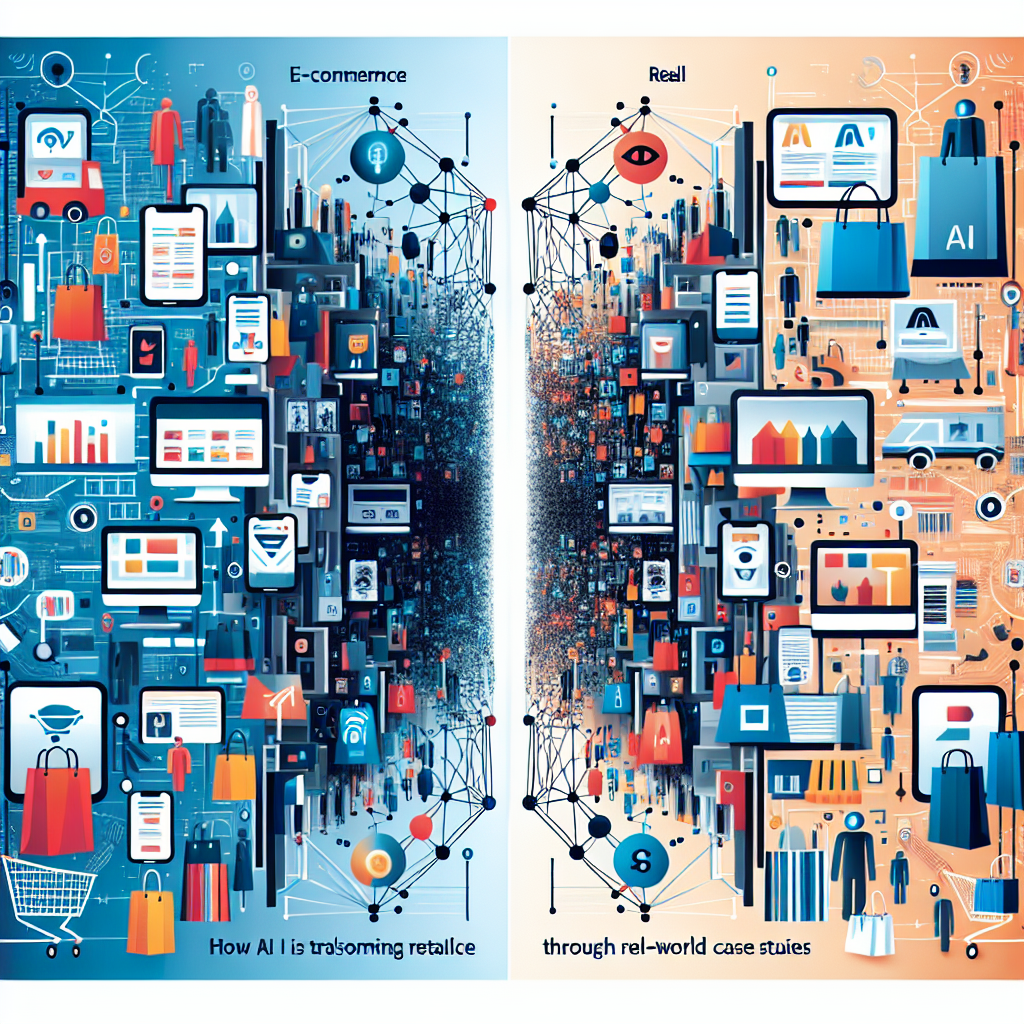25th October 2024
[ ]
]
In the fast-evolving world of e-commerce, Artificial Intelligence (AI) has emerged as a game-changer, reshaping how businesses operate and engage with their customers. Today, we’ll explore how AI is revolutionizing the retail sector through intriguing real-world case studies – from personalized shopping experiences to optimized inventory management.
### 1. Personalized Customer Experiences
**Case Study: Stitch Fix**
Stitch Fix, an online personal styling service, uses AI to tailor clothing items based on customer preferences and feedback. The AI algorithms at Stitch Fix analyze data from customer style quizzes, past purchases, and feedback to recommend new products that align with individual tastes. This high degree of personalization has led to remarkable customer loyalty and a sharp increase in sales.
### 2. Enhanced Search Capabilities
**Case Study: eBay**
eBay, one of the largest online marketplaces, has implemented AI-driven visual search capabilities. This feature allows users to search for products using images instead of words. For example, a user can take a photo of an item they desire, upload it to the eBay app, and find similar listings instantly. This has not only improved user experience by making search more intuitive but has also driven higher conversion rates.
### 3. Efficient Inventory Management
**Case Study: Walmart**
Walmart employs AI to optimize its inventory management across thousands of stores and warehouses. By analyzing real-time data from point-of-sale systems, Walmart can predict which products are likely to be in high demand. This predictive capability helps ensure optimal stock levels, reducing the incidence of overstock and stockouts, and ultimately, increasing profitability.
### 4. Dynamic Pricing Strategies
**Case Study: Amazon**
Amazon uses AI for dynamic pricing, where product prices are automatically adjusted based on various factors such as demand, competition, inventory levels, and customer purchasing patterns. This approach has allowed Amazon to stay competitive by offering the best prices and has helped maximize sales and revenue.
### 5. Fraud Detection and Prevention
**Case Study: Shopify**
Shopify, a leading e-commerce platform, employs AI to detect and prevent fraud. The platform analyzes patterns and trends from millions of transactions to identify potential fraudulent activities. By preventing fraud, Shopify not only protects its sellers but also enhances trust and security for buyer transactions.
### 6. AI-Driven Marketing Automation
**Case Study: Sephora**
Sephora leverages AI to create targeted marketing campaigns. Using data-driven insights, Sephora personalizes its email marketing, product recommendations, and promotional offers. The use of AI in crafting unique user journeys based on individual interaction histories has substantially increased customer engagement and sales.
### 7. Chatbots and Virtual Assistance
**Case Study: H&M**
Fashion retailer H&M uses chatbots on its websites and social media pages to interact with customers, providing styling tips, product recommendations, and answers to common questions. These AI-powered chatbots simulate human-like interactions, improving customer satisfaction and freeing up human resources for more complex customer service tasks.
### Conclusion
AI’s infiltration into retail is not just a trend but a cornerstone of modern e-commerce strategy. By examining these case studies, we’ve seen how AI can drive not only efficiency and cost-effectiveness but also offer a significantly enhanced shopping experience. As AI technology continues to advance, its potential to transform e-commerce is limitless, promising even more innovative ways to meet the evolving demands of customers. The future of retail lies in leveraging AI not just as a tool for automation, but as a profound enabler of personalized, seamless, and engaging shopping experiences.